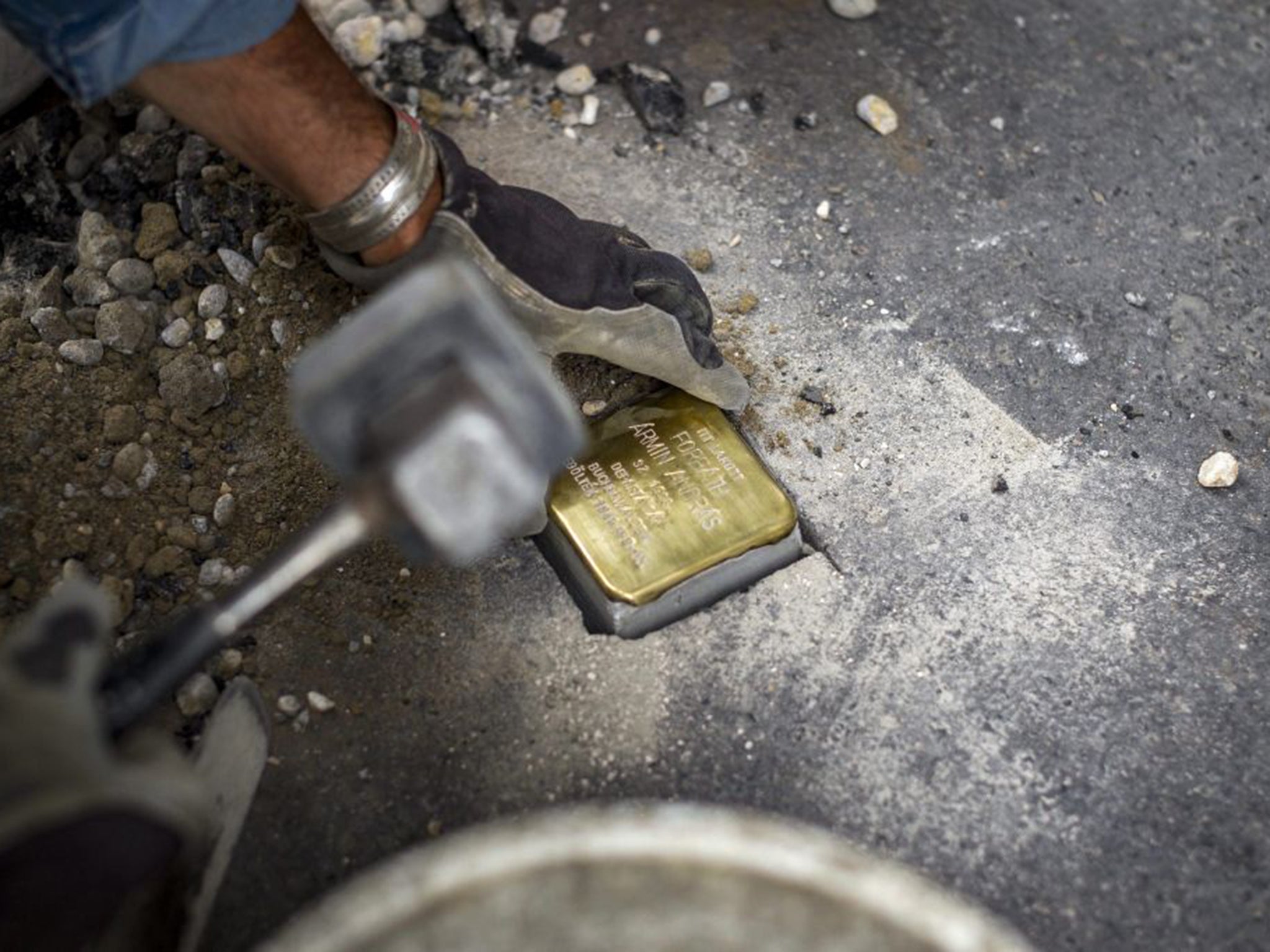Holocaust memorial plaques: Are Munich's 'stumbling stones' a tribute to the Nazi's victims – or an insult?
The city's conservative-led council has voted by a large majority to continue an 11-year ban on them following objections from a Jewish community leader

Your support helps us to tell the story
From reproductive rights to climate change to Big Tech, The Independent is on the ground when the story is developing. Whether it's investigating the financials of Elon Musk's pro-Trump PAC or producing our latest documentary, 'The A Word', which shines a light on the American women fighting for reproductive rights, we know how important it is to parse out the facts from the messaging.
At such a critical moment in US history, we need reporters on the ground. Your donation allows us to keep sending journalists to speak to both sides of the story.
The Independent is trusted by Americans across the entire political spectrum. And unlike many other quality news outlets, we choose not to lock Americans out of our reporting and analysis with paywalls. We believe quality journalism should be available to everyone, paid for by those who can afford it.
Your support makes all the difference.Munich – once notorious as the capital of the Nazi movement – is embroiled in a bitter row about Holocaust commemorations after the city upheld a ban on memorial plaques because of objections from a Jewish community leader.
There are tens of thousands of Stolpersteine (“stumbling stones”) across Europe. Invented by the German artist Gunter Demnig in 1996, brass plates the size of cobblestones are sunk into pavements outside the homes of the Holocaust victims whose names they bear. But following a heated debate about the issue this week, Munich’s conservative-led city council voted by a large majority to continue an 11-year ban on them following objections from Charlotte Knobloch, who chairs Munich’s Israelite Cultural Community (IKG).
Ms Knobloch, 82, a former president of Germany’s Central Council of Jews, has repeatedly argued that, despite the intent, the stumbling stones desecrate the memory of Holocaust victims. “People murdered in the Holocaust deserve better than a plaque in the dust, street dirt and, even worse, filth,” she said. Although her views are not echoed by Germany’s current Central Council of Jews, which supports the concept of stumbling stones, Munich city council nevertheless decided to uphold its ban. “We cannot ignore the views of the IKG,” insisted Alexander Reissl, the leader of the Social Democrat group on the city council.
But concentration-camp survivors and victims’ families said that they would start legal proceedings to overturn the ban. Terry Swartzberg, an American who has lived in Munich for 30 years, is an ardent supporter of the stumbling stones and recently organised a petition against the ban which was signed by 80,000 residents.
“The city council’s decision is a disgrace,” he told The Independent. “It was an exercise in arrogance and a bad day for democracy.”
Munich’s 10,000-strong Jewish community was reduced to just seven by 1944. The handful of brass stumbling stones in the city can be found only in private gardens, where they are hidden from public view. In a compromise, the council agreed to permit the installation of wall plaques on buildings once inhabited by Holocaust victims. However, the fight to win consent for stumbling stones is certain to continue.
Mr Demnig began his project in 2000 to commemorate Jewish victims of the Holocaust, as well as Sinti and Roma gypsies, homosexuals, Jehovah’s Witnesses, blacks, Christians, Communists and disabled people slaughtered by the Nazis.
By November last year, more than 48,000 stumbling stones had been placed in 16 countries across Europe.